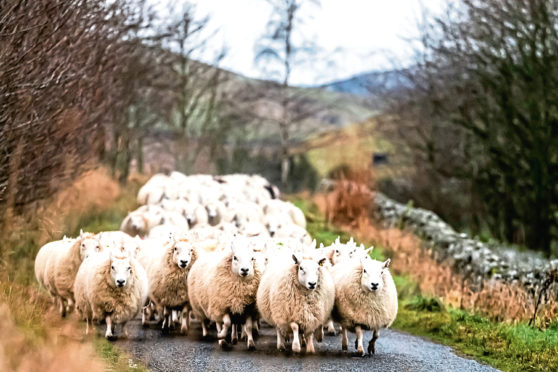Extensive sheep producers should be prepared to stand up and boast about their natural production credentials, even if that reflects negatively on the more intensive red meat sectors.
That was one of the messages at a National Sheep Association (NSA) meeting in Forfar attended by farmers who wanted to know how to counter the growing onslaught on their industry from veganism, animal welfare activism and criticism of their impact on climate change and the environment.
Panellists included representatives from Quality Meat Scotland (QMS), British Wool and NSA, and all speakers advised producers to engage with the public and focus on telling a positive story about red meat production.
However, the James Hutton Institute’s (JHI) Glensaugh Farm manager Donald Barrie pointed out that lamb production systems had a unique advantage over other meat production because they were “produced during the grass-growing season, reared on grass and go to market leaving enough grass to get ewes back into condition before winter”.
“Is that an advantage we’re prepared to talk about publicly, given that if we talk about that it makes other parts of the red meat sector look slightly less rosy in terms of where they sit in the climate change and technical efficiency scale?” he asked.
The event’s chairman, John Fyall said the comparison was “a difficulty” for the wider industry.
Farmers attending the meeting were given a leaflet with 10 key messages to promote the industry all of which were backed up with references to scientific research.
